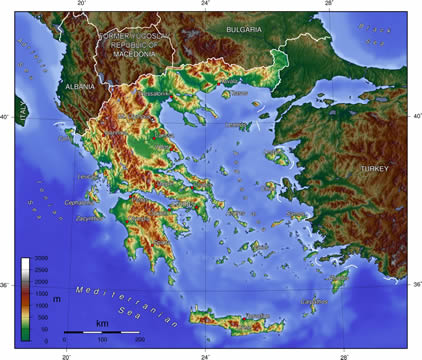

The Pack contains associated resources for the learning experience, typically in the form of articles and videos. There is a teacher Pack (with only teacher information) and a student Pack (which contains only student information). As a teacher, you can toggle between both to see everything.
Here are the teacher pack items for Ancient Greece: Geography and Environment:


Overview In this experience, students begin with an overview of the geographic conditions that led to Greece’s surprising success as a civilization. Then, they investigate the earliest major Aegean civilizations, the Minoans and the Mycenaeans. Next, they learn about the Dark Age, which ended in a burst of colonization that expanded the physical and mental bounds of Greece. Working in small groups, they put their knowledge together in an insightful discussion. This experience contains a lot of content. You may choose to teach it over two sessions in order to spend adequate time on the various early Greek civilizations. Students will work together in small groups in scene 5. Objectives
It’s a small, rocky, mountainous country with dozens of out-of-the-way islands. There’s little fresh water supply; the soil is poor; farms are small and often built on hillsides. Yet this land with its geographical disadvantages was the birthplace of today’s Western civilization, with its sciences, arts, philosophy, literature—and sports. It’s Greece, and in this experience you’ll learn about its beginnings.
Objectives

Greece
Write words or brief phrases that describe the geography of Greece, based on the map. To write more than one, separate them by commas, like this: blue, green
Which factors encouraged ancient Greeks to look to the sea for their livelihoods? Choose all that apply.
How did the mountainous terrain of Greece lead to the rise of city-states?
